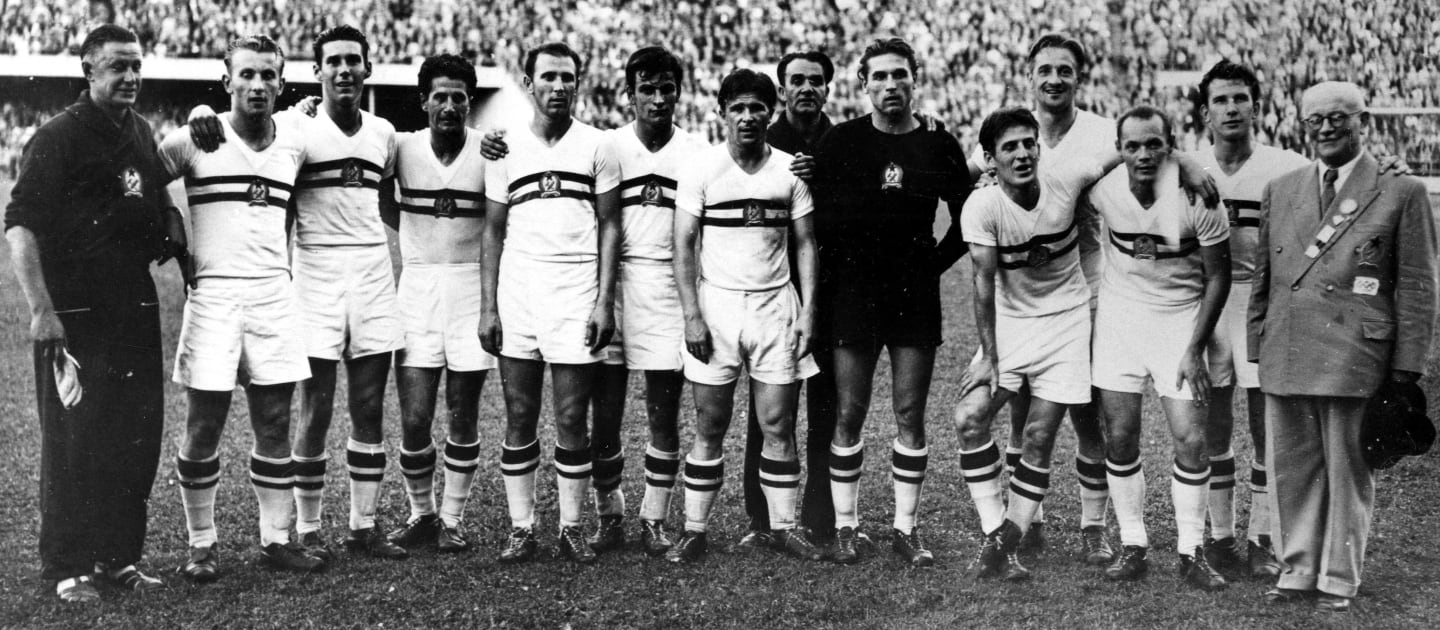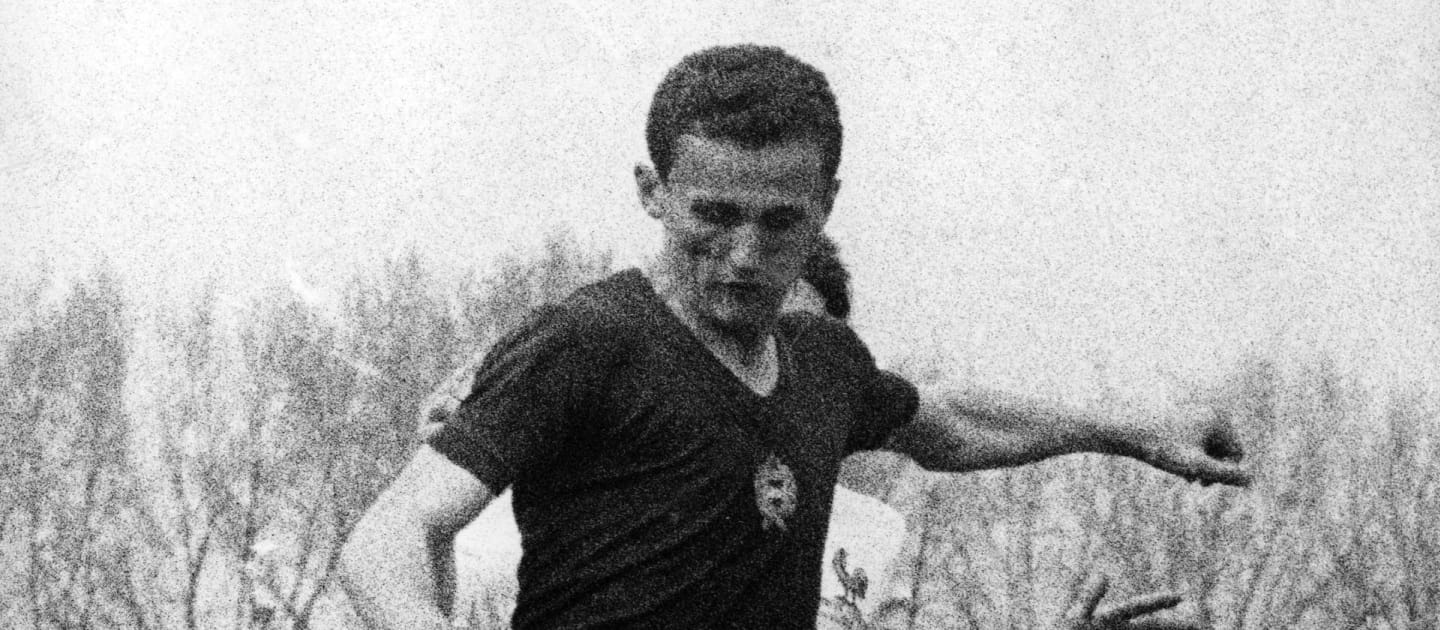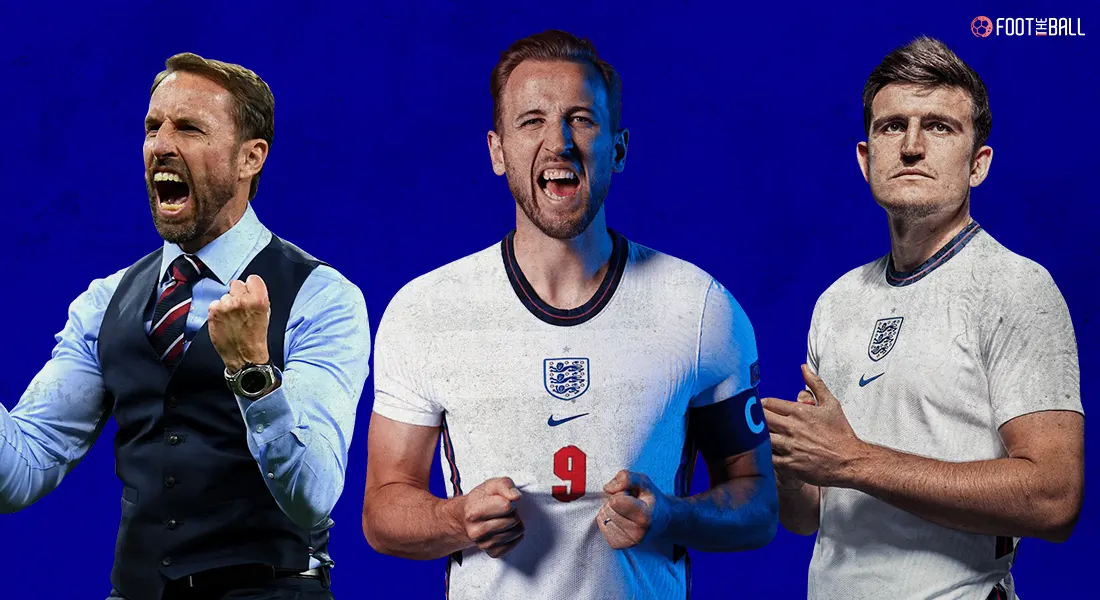The European Championships of 1964, or the European Nations’ Cup as it was known back then, saw the debut of Hungary- a footballing nation the world around was familiar with. The “Magnificent Magyars” team of the 1950s with Ferenc Puskas and Nandor Hidegkuti had enthralled fans around the world, went unbeaten for six years and were involved in some of the most famous matches of all time.
They had defeated England 13-4 over two matches, won the Gold at the 1962 Summer Olympics, and finished runners-up in the 1954 World Cup, a match later dubbed the “Miracle of Bern.” Having enjoyed that much success, optimism was sky high as they entered the 60s to continue that kind of winning.
🧙♂️ Between 1950 and 1954, those fabled Magical Magyars went 1490 days and 31 matches without defeat 🚫
🇭🇺 And that record-breaking run began 70 years ago today 📅#OnThisDay | @MLSZhivatalos | #TBT
ℹ️👉 https://t.co/Gt1Znasv48 pic.twitter.com/0CNIecFqRB
— FIFA World Cup (@FIFAWorldCup) June 4, 2020
The new decade though did not get off to the best of starts for Hungary. Even though they had managed to secure the Bronze at the 1960 Summer Olympics in Rome, their journey in the 1962 World Cup was less than convincing. Having reached the quarter-finals by defeating England and drawing with Argentina, the Magyars endured a rather surprising defeat to Czechoslovakia which dashed their hopes of repeating their last decade’s exploits.

The 1964 Euros in Spain provided the best shot at redemption and having failed to qualify for the inaugural edition in 1960, they were determined to change their fortunes this time.
THE MAGYARS OF 1964
The man in charge of the team was Lajos Baroti, the legendary manager who would go on to win 11 major trophies at club level in the subsequent years. Baroti had assembled a squad of star names in attack for the tournament including Florian Albert, Lajos Tichy, and captain Ferenc Bene. The 22-year-old Albert, a future Ballon D’Or winner, had already picked up the Golden Boot at the 1962 World Cup and was considered one of the best forwards of the era while playing for Ferencvaros.
#FerencBene was a player of Újpesti Dózsa (1961–1978, 417 matches 330 goals). He obtained 76 caps for #Hungary and scored 36 goals. He was bronze medallist at #Euro1964 and a quarter-finalist at #WC1966. #Bene was chosen as Footballer of the Year in 1969. pic.twitter.com/wA8mIiIftu
— OldFootballPhotos (@OldFootball11) October 11, 2018
Bene, the captain of the team, was another exceptional goal scorer who was also the reigning Hungarian Footballer of the Year. Joining Albert and Bene in attack was Tichy, a goal machine who would score over 200 goals in little more than 300 games for his club. All three of them still rank among the top ten goal scorers of Hungary, such was their prolific nature.
GOALS GALORE
Baroti’s star talent did not let him down during their qualification campaign The Hungarian team scored 14 goals in six matches through three rounds. They dismantled Wales 4-1 in the preliminary round with goals from Tichy and Albert. East Germany put up a tougher fight in the round-of-16, just missing out 6-5 on aggregate with Bene bagging a couple of goals.

Heavy weights France, who had won the Bronze in 1958, awaited in the quarters and the Magyars took them to the cleaners. In the first-leg in Paris. Tichy scored a brace and Albert netted one in a 3-1 victory. The second-leg saw Bene score as Hungary edged out 2-1 to seal their ticket to the main tournament. Tichy finished as the second-highest scorer during qualifying with four goals.
EURO READY
Hungary were slated to face Spain in the semi-finals, with La Roja containing the star players of Barcelona and Real Madrid of that era including one Luis Suarez. Even with Hungary’s talented bunch, this was thought to be a step too far for the Magyars. But Baroti carved out another masterpiece and almost made the impossible happen.
#EC1964 #Euro1964: #Spain v #Hungary; #LajosTichy and #Olivella pic.twitter.com/KltcUxTgI6
— OldFootballPhotos (@OldFootball11) June 15, 2016
Spain took the lead in the 35th minute through Barcelona man Chus Pereda. The Magyars found it difficult to break down the resolute Spanish defence, and just when it seemed like they were going to exit the tournament, captain Bene popped up with an equaliser in the 84th minute to force extra-time. La Roja would score again in the 115th minute to break Hungarian hearts and deny them the chance of contesting their first final since 1954.
Hungary would meet Denmark in the third-place playoff. The Danes had been the surprise package of the tournament, having the leading scorer during qualifying, Ole Madsen, among their ranks. The Magyars went ahead in the 11th minute through the boot of Bene again, and looked set to win the contest before footballing karma struck.
Lajos Baróti managed #Hungary in four World Cup tournaments. He also managed #Peru, #Vasas #Újpesti and #Benfica pic.twitter.com/WkKbL0Qqia
— Classic Football (@classic1863) December 23, 2015
This time it was their opponents who equalised, with midfielder Carl Bertelsen in the 82nd minute. The match went to extra-time again, though this time luck was with Hungary. 25-year-old defender Deszko Novak scored twice, including a penalty, to put Hungary 3-1 up which took them to the podium stand once again.
MORE SUCCESS
Ferenc Bene would be awarded the joint Golden Boot award and he along with Albert and Novak were named in the UEFA Team of the Tournament. This team of Euro 1964 would later win Gold at the 1964 Tokyo Olympics as well. Bene would once again finish as top-scorer there with 12 goals. The success that the Euros brought them had become another feather in the cap of this great team who were rightfully one of the best to have ever competed during that era.



